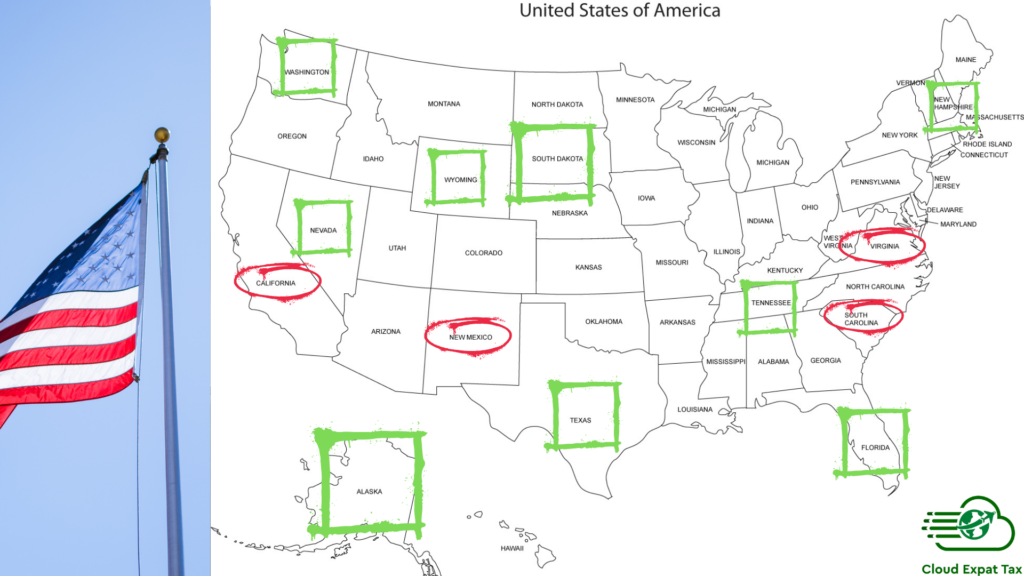State Taxes
FOR
US EXPATS
Table of Contents:
Introduction - State Taxes for US Expats
State Taxes for US Expats happens to be the bastard child, ignored and a distant memory. Once an expat has boarded that flight abroad, most of them are always reminded about their tax obligations to Uncle Sam. That is federal tax obligation that we are talking about. What very few know is that, they might also have a tax obligation to their home(domicile) states.
Do US expats pay state taxes ?
Short Answer: It depends! If a US expat happens to have rental or business/investment/passive income from any US state(states which has income taxes), you would most probably have a filing requirement in that State. The type of filing usually depends on the residency rules. Usually for the States, if you are more than half a year away, you are considered a non-resident. Each state has its own residency rules. For a US expat abroad, not all states allow Foreign earned income exclusion or foreign tax credits.
If you are from a State, that has no Filing obligations (7 States), you do not have a filing requirement and do not pay taxes.
WHICH STATES EXPECT US EXPATS TO FILE TAX RETURN ?
The 4 States mentioned below are a real pain in the neck when it comes to getting rid of their State Residency. They want to squeeze out the maximum amount of taxes from the departing expats.
- California
- New Mexico
- South Carolina
- Virginia
If you made an exit from these States, you should, by all means, sever all ties you had with these States. That Includes:
- Bank Accounts
- Property Mortgages
- Voter ID
- Driving Licenses
- Utility Bills
- Leases
- Mailing address
- Dependents living in the state
You need to prove that if you have departed from these states, you will not return to the state. The burden is on you to prove that you won’t make a return. If you are not able to prove it, then you need to file a tax return in these States, even if you never resided in these States. These States also Tax Worldwide Income. Since these States only recognize a move to another State as a change of residency (not a move to another country), it’s imperative that the Taxpayer properly plans ahead and sever State ties.

Which States have no tax filing requirement FOR US EXPATS?
The following States have no filing requirements and do not collect Income taxes from their Residents or for that matter any Individuals. These are the Tax-Free States in the US:
- Texas
- Wyoming
- Alaska
- Florida
- Washington State
- South Dakota
- Nevada
Apart from these 7 States, there are 2 additional States which only impose Tax on Interest and Dividends
What is the best way for US expats to avoid sticky states?
The best way for US expats to deal with the Sticky states is to move to any of the above 9 States prior to a move abroad and establish residency, preferably 6-12 months in advance prior to the move. This would require months of Tax planning in advance. The four Sticky States consider a move abroad as a period of temporary absence, where they expect the Resident to relocate back to the same state. Hence, the key lies in severing all applicable ties from that State to avoid a State Tax return shock abroad.
Conclusion - State Taxes for US Expats
If you are from a state that has no state taxes or a filing requirement, as a US expat, you are pretty much sorted. If you did have income generated from a state that has income taxes, you must check with the state filing requirements for non-residents. Having a Qualified Professional to do Tax planning in Advance in the year of Departure or Arrival can save plenty of headaches associated with the Sticky States. If you still have questions, feel free to get in touch with us.
